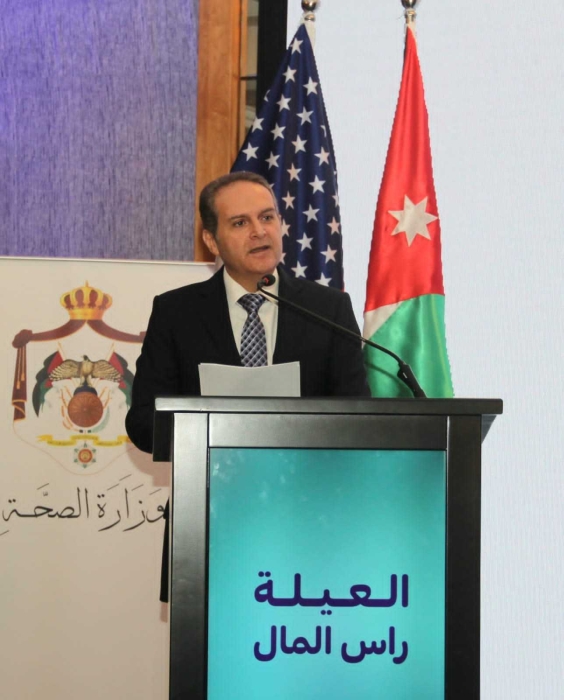- Local News
- Mon-2023-08-28 | 02:56 pm

Nayrouz News Agency :
The Ministry of Health launched on Monday the first of four national media campaigns for family planning, in partnership with the Health and Family Planning Partners Project, funded by the United States Agency for International Development (USAID).
The campaign focuses on the impact of adopting family planning concepts of birth spacing between pregnancies to avoid the risks of frequent and close pregnancies and the appropriate family size in achieving family well-being for the mother, father and children.
It will be broadcast for a month through television and radio advertisements, outdoor advertisements in roads, commercial complexes, gas stations and buses, and publications on various social media and websites, in addition to media coverage of the campaign's activities through radio and television interviews.
The ministry, in conjunction with the launch of the campaign, will also implement three community awareness festivals in the north, center and south of the Kingdom.
Speaking on the campaign, Minister of Health Firas Hawari stressed the need to continue cooperation between the Jordanian government and donors to achieve the desired development for the health sector, which is laid out in both the ministry's strategy and the Economic Modernization Vision, and achieve universal health coverage by 2030 in accordance with Jordan's commitments.
He said that Jordan has made tangible progress in the field of primary health care and women's and children's health, noting that there is a steady increase in the percentage of pregnant women receiving prenatal care.
He pointed to the challenges faced by the health sector in Jordan as a result of hosting about 1.3 million Syrian refugees, and the accompanying increase in childbirth, which has placed an unprecedented additional pressure on the infrastructure of the Ministry of Health's hospitals and health centers.
He pointed to the increase in the total fertility rate of Syrian refugee women, which reached 4.7, compared to the average birth rate of Jordanian women at childbearing age, which is at 2.6, explaining that the total registered births of Syrians since the start of the Syrian refugee crisis amounted to about 200,000 births.
Hawari stressed that the launch of a national media campaign for family planning comes within an integrated strategy developed by the Ministry of Health to promote the health of mothers and children.
The campaign, he noted, includes promoting exclusively breastfeeding newborns up to 6 months of age, feeding infants, young children and mothers, launching a women-friendly health centers initiative, a baby-friendly hospital initiative and providing free reproductive health and family planning services.
He pointed out that birth spacing is one of the most important positive health practices, which the ministry highlights because of its direct impact on the health of newborns and their mothers and on reducing the rates of premature births, the low birth weight of a newborn, maternal and child mortality and other complications of pregnancy and childbirth, in addition to the impact of these practices on the family and society.
The ministry has provided reproductive health and family planning services in more than 500 health centers and has worked to improve their quality to ensure that target groups across the Kingdom, both Jordanians or non-Jordanians, receive integrated and distinguished services, Hawari added.
For her part, USAID Mission Director in Jordan Leslie Reid said: "This campaign seeks to motivate, inspire and enable couples to change behaviors to improve their health and the health of their families by providing them with the information they need to make healthier choices."










